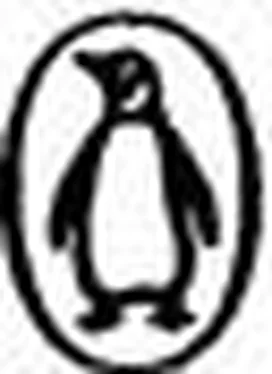William Trevor - A Bit on the Side
Здесь есть возможность читать онлайн «William Trevor - A Bit on the Side» весь текст электронной книги совершенно бесплатно (целиком полную версию без сокращений). В некоторых случаях можно слушать аудио, скачать через торрент в формате fb2 и присутствует краткое содержание. Год выпуска: 0101, Издательство: Penguin Publishing, Жанр: Старинная литература, на английском языке. Описание произведения, (предисловие) а так же отзывы посетителей доступны на портале библиотеки ЛибКат.
- Название:A Bit on the Side
- Автор:
- Издательство:Penguin Publishing
- Жанр:
- Год:0101
- ISBN:нет данных
- Рейтинг книги:5 / 5. Голосов: 1
-
Избранное:Добавить в избранное
- Отзывы:
-
Ваша оценка:
- 100
- 1
- 2
- 3
- 4
- 5
A Bit on the Side: краткое содержание, описание и аннотация
Предлагаем к чтению аннотацию, описание, краткое содержание или предисловие (зависит от того, что написал сам автор книги «A Bit on the Side»). Если вы не нашли необходимую информацию о книге — напишите в комментариях, мы постараемся отыскать её.
A Bit on the Side — читать онлайн бесплатно полную книгу (весь текст) целиком
Ниже представлен текст книги, разбитый по страницам. Система сохранения места последней прочитанной страницы, позволяет с удобством читать онлайн бесплатно книгу «A Bit on the Side», без необходимости каждый раз заново искать на чём Вы остановились. Поставьте закладку, и сможете в любой момент перейти на страницу, на которой закончили чтение.
Интервал:
Закладка:
I missed you the minute I left, John Michael wrote. There was a lot to tell her, his first letter went on, but even so it was short. He wasn’t used to writing letters, he’d said before he went away, he’d do his best. J have work with a gang, he wrote when three weeks had gone by, and unable to help herself Fina thought of gangsters. She laughed, as though John Michael were there to laugh with her.
There were tourists here last week , she wrote herself. Italian people who asked Mary Doleen would there be fish today. They came into the shop and we thought they were German but they said Italian. They’d be back for fish in the morning, they said, but they never came. Bat Quinn was on the pier waiting, wanting to know was it Rome they were from. There were never Italians here before, he said, the time of the wreck it was Spaniards washed up. He was down on the pier the next few mornings, but they never came back.
John Michael replied directly to that, saying he was working with an Italian but he didn’t know his name. It was labouring work, he said. ‘Give him time, girl,’ Bat Quinn advised, but when more weeks went by there was no mention of the streets of Boston or the Kansas wheatlands. Then a letter came that asked Fina not to write because there wouldn’t be an address to write to for a while. John Michael said he’d let her know when he had one again.
In this way Fina and John Michael began to lose touch. You had to lodge where you could, John Michael had explained; you wouldn’t earn a penny if you paid regular rent. Fina didn’t entirely understand this. She couldn’t see that you could lodge anywhere without paying rent, and it was too late now to ask. John Michael had to take what he could get, she of course could see that. He had to move about if it was the only way; if he said so it must be right.
A cold, sunny November began, but the pattern of the days themselves didn’t change much. Fina served in the shop, slicing rashers on the machine, adding up bills, unpacking the items that were delivered – the jams and meat pastes and tinned goods, the porridge meal and dried goods, the baking ingredients in their bulky cartons. O’Brien’s bread van brought the bread from Kinard on Tuesdays and Fridays, milk came on alternate days and there was the longlife if it was held up, which sometimes it was. Experience had taught the family of the half-and-half the business, what to order and when, what to keep in stock both in the shop and in the bar. You could be caught out if you didn’t know what you were doing, Fina’s mother used to say; you could have stuff on the shelves for a generation or find yourself running out because you hadn’t looked ahead. Her mother ran the shop and took a rest in the evenings when the men came into the bar and Fina’s father was in charge. Her mother was as lightly made as Fina was, small and busy, with a certain knowledge of where everything was on the crowded shelves of the grocery, quick with figures, spectacles suspended on a chain. Fina’s father – assisted in the bar by Fina, as her mother was in the shop – was a big man, slow of movement and thought, silver-haired, always in his shirtsleeves, the sleeves themselves rolled up. He put on a black suit to go to Mass, and a tie with a tiepin, and wore a hat for the walk through the village. Fina’s mother dressed herself carefully also, in a coat and hat that were not otherwise worn. The three of them went together on Sundays and separately at other times, to confession or confraternity.
John Michael didn’t write when he had no address, and Fina fell back on her imagination. The world of America, which she and John Michael had talked about and wondered about for so long, was spiced with the yarns of Bat Quinn, his exaggeration and fantasy steadied by facts remembered from the days when Mr Horan unrolled the map of the continent and hung it on the blackboard. On the glossy surface the states were shown in shades of brown and green and yellow, the Great Lakes blue. Iron came from Minnesota and Michigan and Pennsylvania, uranium from Colorado. Cotton and tobacco belonged to the south.
The tip of Mr Horan’s cane moved in a straight line, horizontally, up and down, dividing Nebraska from South Dakota, Oregon from Idaho. It rapped the dates of admission to the Union, it traced the course of the long Mississippi, it touched the Rockies. You listened because you had to, stifling yawns of tedium, thankfully forgetting what the Louisiana Purchase was. The scissor-tailed flycatcher was the state bird of Oklahoma, the peony was the flower of Indiana. It was in Milwaukee that Donoghue became a candy king.
The tattered schoolroom cane picking out the facts had failed to create much of a reality. Bat Quinn’s second-hand information didn’t inspire Fina as it did John Michael. But America lived for both of them on the screen high up above the bar of the half-and-half or the one in John Michael’s kitchen. For two years before she died his mother had to be helped to go to bed and as often as she could Fina assisted. Afterwards she sat with John Michael in the kitchen, with tea and pink Mikado biscuits and the sound turned low. They watched America, they heard its voices. Its ballgame heroes battled, rigid in their padding and their helmets. Steam swirled above the night-time gratings of its city streets. Legs wide, eyes dead, its gangsters splayed their fingers on precinct walls.
Fina liked it when the doormen greeted the yellow cabs, and the quick talk in the skyscraper lifts, and Christmas in the stores. She liked the lone driver on the highway, music on his radio, the wayside gas station he drew up at, its attendant swatting flies. She liked the boy who drilled for oil too near the old-time ranch, everything changing because the gush of oil was what mattered now, the boy in the end a bigtime millionaire. College days, Thanksgiving, Robert E. Lee: she liked all that. ‘You want to?’ John Michael would whisper and Fina always nodded, never hesitating.
I got work in a laundry , the next letter said, slow in coming. Bat Quinn wagged his head in admiration when he heard. There were big bucks in the laundry business, no doubt about it. The President’s shirts would have to go to a laundry, and Bat Quinn twisted round on his barstool, exclaiming loudly that John Michael Gallagher was in charge of the shirts of the President of the United States. ‘I’ll tell you a thing, girl, you hit it lucky with John Michael Gallagher.’
Fina put all that in a letter, making a joke of it, as they would have in the past. It was a long letter, with bits of news saved up from the period when they’d been out of touch: O’Brien’s bread van breaking down, the boats unable to go out for four days, the widow dancing at Martin Shaul’s wake. She wondered if John Michael had an accent now, like Bat Quinn said Matt Cready acquired.
A Christmas card came in January and a fortnight later a letter with an address, 2a Beaver Street, a room that was big enough for both of them. I painted it out , John Michael wrote. I cleaned the windows. Ninety-one days had passed and the ones that were passing now had begun to lengthen. In Kinard a week ago Fina had chosen the material for her dress. She kept telling herself it wouldn’t be all that long before the first banns were called.
The morning the letter about the room came there was an iciness in the air when she walked on the strand, thinking about the banns and thinking about Beaver Street. She imagined a fire escape zig-zagging on an outside wall, a big metal structure she had seen in a film, windows opening on to it. She imagined a poor neighbourhood because that was what John Michael could afford, spindly trees struggling to grow along a sidewalk. She wouldn’t object to a poor neighbourhood, she knew he’d done his best.
Читать дальшеИнтервал:
Закладка:
Похожие книги на «A Bit on the Side»
Представляем Вашему вниманию похожие книги на «A Bit on the Side» списком для выбора. Мы отобрали схожую по названию и смыслу литературу в надежде предоставить читателям больше вариантов отыскать новые, интересные, ещё непрочитанные произведения.
Обсуждение, отзывы о книге «A Bit on the Side» и просто собственные мнения читателей. Оставьте ваши комментарии, напишите, что Вы думаете о произведении, его смысле или главных героях. Укажите что конкретно понравилось, а что нет, и почему Вы так считаете.










